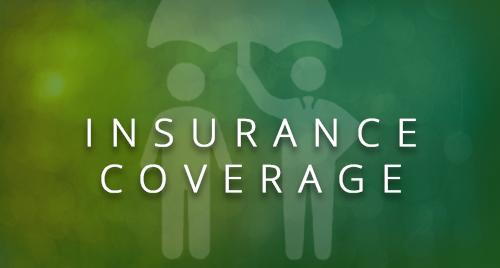
- posted: Sep. 30, 2022
- BRM Attorneys, BRM Shareholders, Personal Injury Defense Attorneys, Insurance Coverage, Insurance Coverage Litigation, Uninsured and Underinsured Motorists, Michigan Insurance Coverage Attorney
Is there coverage?
A coverage review involves a two-step analysis:
Insurance coverage is dictated by the policy terms, exclusions and conditions in the applicable insurance policy. Determining whether there is available coverage is the threshold question for any claim handling process, whether it be auto (personal or commercial), general liability, homeowners, or worker’s compensation. A coverage review is the first step. Without coverage, no claim can be paid.

Step One
1. First, determine whether the loss falls under the initial grant of coverage.
Step Two
2. Next, examine all other policy terms and conditions to determine if coverage is limited or removed under the policy provisions.
Coverage issues involving UM/UIM benefits
As an example, coverage questions come up often with Uninsured/Underinsured Motorist Coverage (UM/UIM). UM/UIM coverage is not statutorily mandated, which means the policy language controls coverage and the policy has to be reviewed to assess whether coverage is available.
Generally, UM/UIM coverage issues in Michigan arise when an individual has been injured in a car accident caused by an uninsured or underinsured driver and files a claim with their own auto insurance provider. Usually, the injured person’s own insurance company will pay compensation that would otherwise have been recovered from an at-fault, uninsured/underinsured driver’s auto insurance company if the other driver had been adequately insured or insured at all.
UM/UIM coverage is available under the terms of the injured party’s own policy or sometimes under the insurance policy for the vehicle in which the injured party is a passenger. UM/UIM policy terms and conditions must be reviewed to find out if non-resident family members or other vehicle occupants are covered or under what other circumstances any UM/UIM coverage may exist. Other coverage issues can be in play as well. Some examples include: timely notice, proof of “actual contact” between a hit-and-run vehicle and the injured person or their vehicle, and whether “set-off” provisions allow deductions from benefits owed when paid by another source (e.g. a deduction in the amount of liability insurance paid on behalf of the at-fault driver).
As of July 1, 2020, UM/UIM insurance may also cover an injured party’s No-Fault PIP benefits if certain conditions are met, such as the injured party exceeding their No-Fault PIP coverage election and exhausting the at-fault driver’s auto liability policy limits.
 Determining coverage is the first step for handling any type of claim. At Bowen, Radabaugh & Milton, P.C., we offer a wide range of legal services to insurance carriers, and have the experience and knowledge necessary to advise on coverage issues associated with various types of claims. For more information about any coverage questions which might arise, call or email Michele Riker-Semon.
Determining coverage is the first step for handling any type of claim. At Bowen, Radabaugh & Milton, P.C., we offer a wide range of legal services to insurance carriers, and have the experience and knowledge necessary to advise on coverage issues associated with various types of claims. For more information about any coverage questions which might arise, call or email Michele Riker-Semon.


